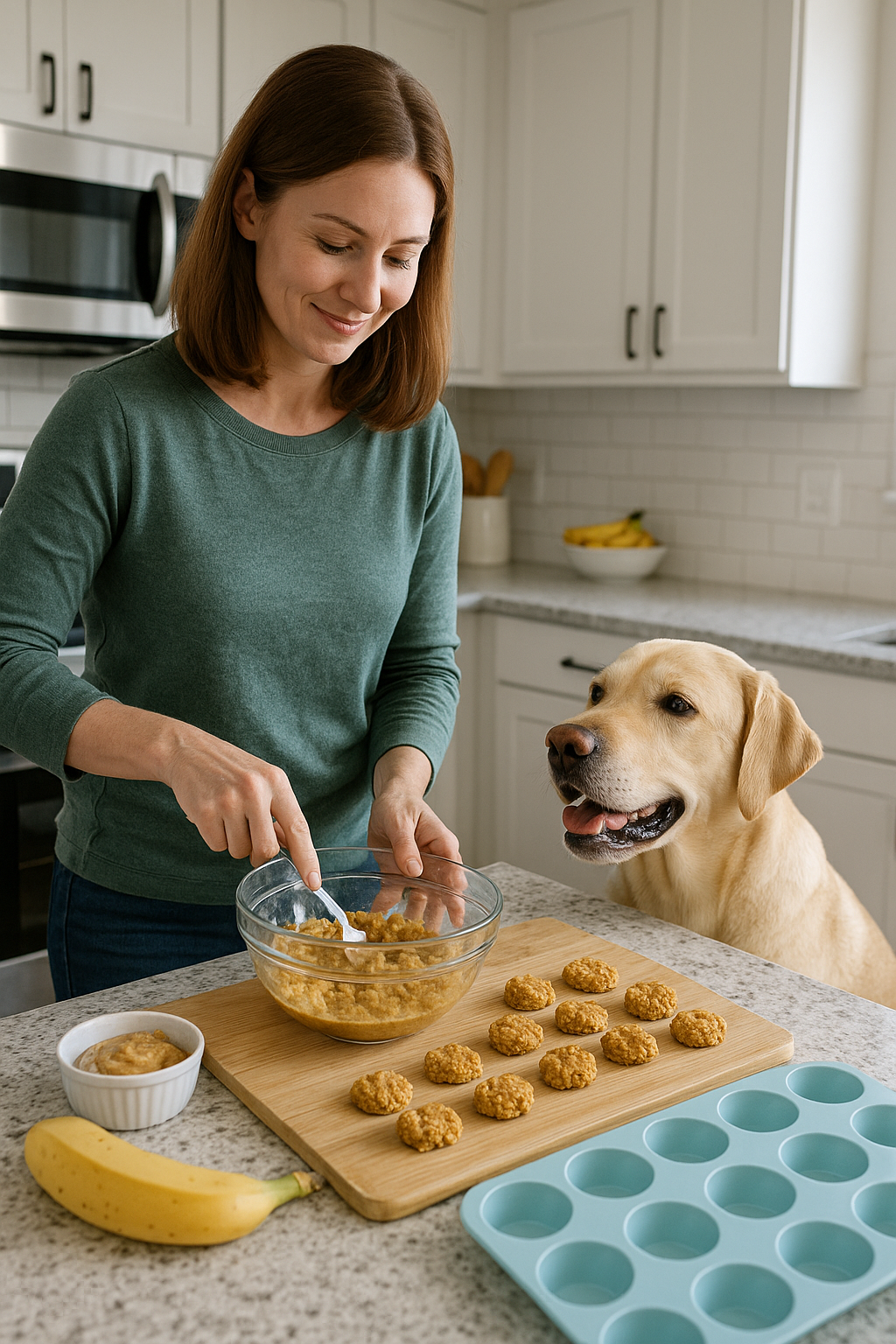Your dog’s coat is more than just their appearance—it’s a reflection of their overall health. Shiny, soft fur typically signals that your dog is receiving the right nutrients and care, while dull, brittle, or itchy fur may indicate deficiencies in their daily routine.
While quality dog food plays a primary role in coat health, adding homemade snacks to your dog’s diet can be an easy and enjoyable way to boost essential nutrients naturally. These snacks not only support a healthier coat but also provide variety, enrichment, and bonding during feeding routines.
This article covers the key nutrients that improve skin and fur, safe ingredients to use, and simple homemade snack ideas you can prepare using everyday items from your kitchen.
Why Coat Health Matters in Your Dog’s Daily Life
A healthy coat is more than just aesthetic—it helps:
- Regulate your dog’s body temperature
- Protect against parasites, dust, and allergens
- Serve as an early indicator of overall well-being
- Improve your dog’s comfort, reducing itching and hot spots
Many common coat issues like dryness, shedding, or greasy fur can be addressed with improved nutrition, especially when paired with consistent grooming and hydration.
Key Nutrients for a Healthy Dog Coat
Before creating snacks, it’s important to understand which nutrients directly influence coat health.
1. Omega-3 Fatty Acids
Support skin hydration and reduce inflammation.
Sources: Flaxseed, chia seeds, fish (like sardines or salmon, cooked)
2. Vitamin E
Protects skin cells and improves texture.
Sources: Sunflower seeds, spinach, pumpkin
3. Biotin (Vitamin B7)
Strengthens hair and improves growth.
Sources: Eggs (cooked), sweet potatoes, peas
4. Zinc
Helps with skin repair and reduces flaking.
Sources: Lean beef, pumpkin seeds, chickpeas
5. Protein
Fur is made of keratin, a protein. A lack of protein can cause excessive shedding.
Sources: Eggs, turkey, chicken, oats
By including these nutrients in your homemade snacks, you support your dog’s coat from the inside out.
Safety First: Ingredients to Avoid
Even when preparing healthy snacks, some common human ingredients are harmful to dogs.
Never include:
- Onions or garlic
- Chocolate or caffeine
- Grapes or raisins
- Macadamia nuts
- Artificial sweeteners (especially xylitol)
- Excessive salt or sugar
Always introduce new ingredients in small quantities and monitor your dog’s reaction.
3 Simple Homemade Snacks for Coat Health
Here are three easy recipes you can rotate throughout the week. These can be offered as treats, rewards, or enrichment activities.
1. Golden Skin Smoothie Bites
These frozen treats are rich in omega-3s, protein, and antioxidants.
Ingredients:
- ½ cup plain Greek yogurt (unsweetened)
- 1 tablespoon ground flaxseed
- ¼ cup cooked salmon (boneless)
- 1 small cooked sweet potato
- 1 teaspoon turmeric (optional, for inflammation)
Instructions:
- Blend all ingredients until smooth.
- Pour into silicone molds or an ice cube tray.
- Freeze for at least 4 hours.
- Serve one cube at a time for dogs over 10kg; half for smaller dogs.
2. Oat and Pumpkin Crunchies
These baked snacks are perfect for dogs with sensitive stomachs and contain vitamin E and fiber.
Ingredients:
- 1 cup rolled oats
- ½ cup pure pumpkin puree (unsweetened)
- 1 egg (cooked into the dough)
- 1 tablespoon sunflower seed butter (no salt, no sugar)
Instructions:
- Preheat oven to 180°C (350°F).
- Mix all ingredients in a bowl until a thick dough forms.
- Roll into small balls or flatten into cookies.
- Place on a baking sheet with parchment paper.
- Bake for 25 minutes or until firm and golden.
- Let cool completely before serving.
3. Chia-Boosted Banana Slices
These no-bake snacks are quick and rich in omega-3s and potassium.
Ingredients:
- 1 ripe banana
- ½ teaspoon chia seeds
- 1 teaspoon natural peanut butter (xylitol-free)
Instructions:
- Slice the banana into ½-inch pieces.
- Spread a tiny amount of peanut butter on top.
- Sprinkle chia seeds over each slice.
- Chill for 30 minutes and serve.
These treats are ideal for hot days or midday rewards.
How Often Should You Offer Homemade Snacks?
Snacks should not replace balanced meals but can supplement the diet.
General Guidelines:
- 1–2 small snacks per day
- Reduce store-bought treat quantity on days you offer homemade snacks
- Keep portions small and watch for any food sensitivities
For dogs on a special diet or with existing health conditions, consult your vet before introducing new snacks.
Enhancing the Effect with Grooming and Hydration
While nutrition supports internal health, external routines help maximize results.
Daily/Weekly Habits to Combine with Snacks:
- Brushing your dog’s coat to distribute natural oils
- Offering plenty of fresh water throughout the day
- Using a gentle, hydrating shampoo during baths
- Ensuring a stress-free environment (stress affects fur health too)
- Providing shade and skin protection during sunny weather
These habits complement your nutritional efforts and help your dog maintain a balanced coat.
Keeping It Fun and Enriching
Homemade snacks offer more than nutrients—they provide interaction and stimulation. Use them:
- During short training sessions
- As a reward after grooming
- Inside puzzle toys for mental exercise
- As part of a calming evening routine
Preparing the snacks together can also be a bonding activity for pet owners who want to contribute actively to their dog’s care.
Final Thoughts
Supporting your dog’s coat health doesn’t require expensive supplements or synthetic products. With fresh, whole ingredients and just a few minutes in the kitchen, you can create delicious snacks that promote stronger, shinier fur—naturally.
When paired with hydration, grooming, and a calm environment, these treats become a small yet powerful part of your dog’s wellness routine. And the best part? They’ll love every bite.
